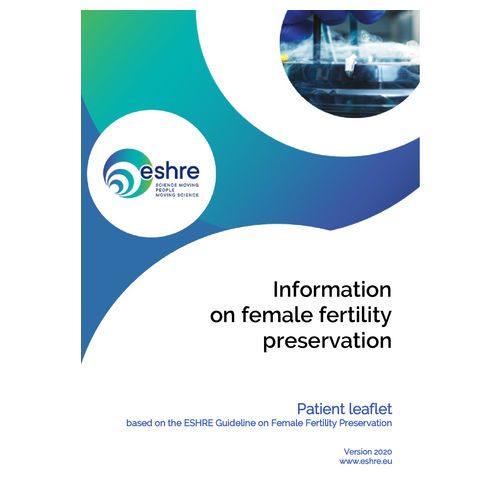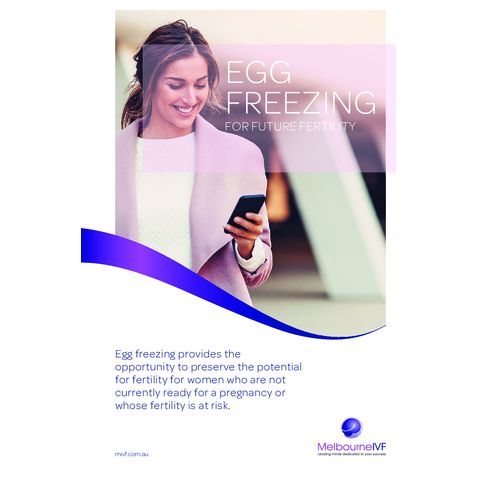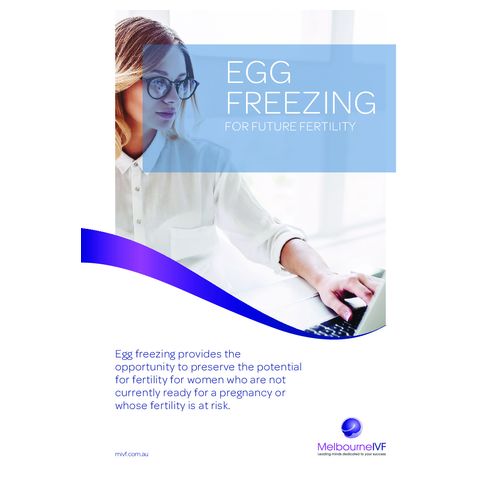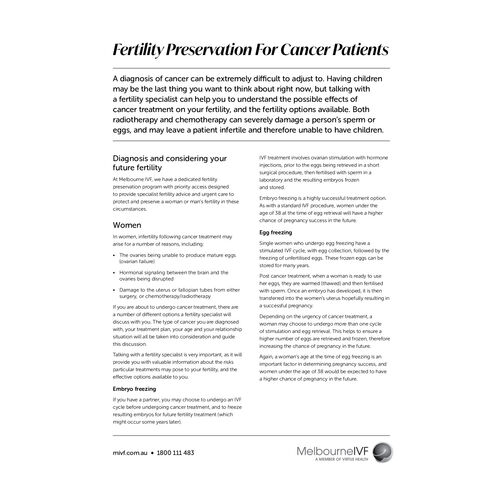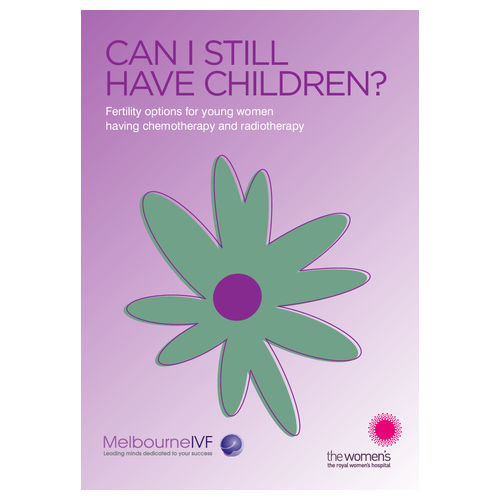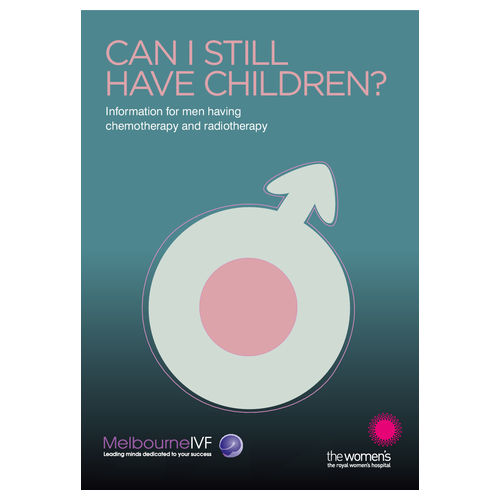Fertility Preservation
At Melbourne IVF our fertility preservation service is designed to protect and preserve your fertility for the future. We specialise in providing fertility care for patients who have cancer or where their fertility is at risk, or for those looking to explore elective egg freezing options.
As a leading provider of fertility preservation services both nationally and internationally, we have over 20 years' experience guiding patients through their fertility preservation needs.
Enquire Today
Our Head of Fertility Preservation Service, Associate Professor Kate Stern, chaired the Clinical Oncological Society of Australia steering group that developed the National Guidance for Fertility Preservation. A/Prof Stern performed the first ovarian tissue grafting procedure in Australia and also founded the Fertility Society of Australia special interest group on medical fertility preservation for cancer patients.
If your fertility preservation referral is for oncology (cancer) purposes you should mention this at the time of your appointment to see the fertility specialist to ensure that you are seen quickly - within 24-48 hours with a senior fertility specialist and a counsellor if required.
For more information on fertility preservation or to book an appointment with a Fertility Specialist, call Melbourne IVF on 1800 111 483 or contact us via [email protected]
Fertility options
The main reason young women and men may need to consider this is the risk of damage to eggs and sperm from chemotherapy drugs, radiotherapy or other treatments, including surgery, for serious medical illnesses and cancer.
Some women may also consider fertility preservation because they are getting older but are not in a situation where they can try to have a baby right now.
For young women these options include freezing of eggs, freezing of embryos, freezing of ovarian tissue and medications which may protect the ovaries from toxic chemotherapy drugs.
For young men the options include freezing some sperm and freezing of testicular tissue.COSA Guidelines
COSA is the national body for work involving cancer patients. They have worked with a variety of experts to develop these guidelines to assist patients to navigate their fertility preservation journey.
To learn more about how ovarian function and pregnancy and live birth can impact your fertility, visit their website here.
Getting started
If you are considering fertility preservation you should organise an appointment with one of our fertility specialists, or with one of our fertility counsellors if you are not ready to take that step. You will need a referral from your GP or specialist.
Your fertility specialist will discuss any risks associated with your fertility treatment, including the extent of the planned medical treatments or delay in commencing a family. Your fertility specialist can then advise you of the best options for your individual situation.
This initial appointment gives you the opportunity to discuss your personal circumstances, become informed about the risks to your fertility, and learn about different fertility-protecting and fertility-preserving options. It also helps establish the contact with your fertility specialist. After the cancer or other fertility-compromising treatment has been completed, you will need to have your ongoing potential fertility and hormonal issues assessed and managed. You may also wish to consider other future options, such as donor sperm or donor eggs.The fertility specialist will take a medical history, arrange any necessary investigations (including blood tests and ultrasound assessment of the ovaries) and arrange a counselling referral if this is required or requested. If you choose to have egg freezing, the fertility specialist will then manage your care through the stimulation and egg collection procedure.
Our research into fertility preservation
Melbourne IVF has been involved in extensive research for more than 10 years on ways to protect and preserve fertility in women and men who need treatment for cancer.
We are currently developing new ways to help protect fertility during chemotherapy or other therapies that can affect the reproductive organs. Our research also focuses on techniques to preserve mature eggs or ovarian tissue before chemotherapy, radiotherapy or surgery. This research was the first of its kind in Australia and provides leadership and expertise to other clinics around the country.
Information Booklets
Listen to a podcast
Women’s and Children’s Health Update: Fertility preservation during cancer treatment
Featuring A/Prof Kate Stern, Clinical Director and Head of Clinical Research, Melbourne IVF
